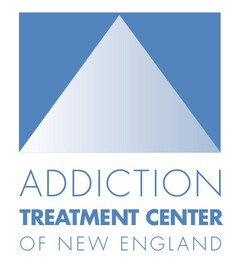Compassionate Treatment: Discovering Addiction Treatment Centers Near You
Wiki Article
Navigating the Journey of Detoxing in the Comprehensive Dependency Therapy Program
The procedure of cleansing holds a significant duty in breaking the physical dependence on compounds and preparing the individual for the succeeding stages of therapy. As individuals grapple with the obstacles of withdrawal signs and the uncertainties that exist ahead, having a durable assistance and a structured plan system in place comes to be paramount.Relevance of Detoxing in Recovery

Detoxing sets the structure for the remainder of the dependency treatment program by preparing the individual for additional therapy and therapy. By cleansing the body of compounds that have been clouding judgment and affecting behavior, detoxification makes it possible for individuals to approach their recuperation with a more clear mind and more powerful emphasis.
In addition, detoxing aids in managing the possibly serious withdrawal signs and symptoms that may occur when drug or alcohol usage is quit. Physician carefully monitor clients during detox to ensure their security and give needed support. Through this process, people can begin their trip towards soberness with a stabilized physical and psychological state, enhancing the possibility of a successful healing.
Understanding the Detoxification Process
Cleansing, an essential part of dependency therapy programs, entails an organized procedure focused on safely getting rid of damaging compounds from the body to facilitate a successful healing journey. The detoxification process normally begins with an assessment to assess the person's substance usage background, physical health, and mental wellness. This examination aids health care professionals identify one of the most appropriate detoxification strategy customized to the person's demands.Throughout detox, the body goes with withdrawal as it adapts to the lack of the compound. Withdrawal symptoms vary depending upon the sort of substance used, the duration of usage, and private elements. Medical supervision during detoxification is essential to manage withdrawal symptoms and make sure the individual's safety and comfort.

Taking Care Of Withdrawal Signs And Symptoms

Drugs may be used to alleviate details withdrawal signs and decrease pain. Drugs like methadone or buprenorphine can aid handle opioid withdrawal signs, while benzodiazepines may be made use of for alcohol withdrawal. It is vital for medical care suppliers to very carefully check the person's action to these medicines to ensure their safety and performance.
In enhancement to pharmacological treatments, helpful treatments such as therapy, peer support teams, and alternative methods like mindfulness meditation or yoga can assist individuals deal with the mental and psychological challenges of withdrawal. By attending to withdrawal signs adequately, doctor can enhance the detoxification experience and assistance individuals on their trip to recovery.

Assistance Solutions Throughout Detox
Support group play a crucial role in providing social and emotional support to people undergoing cleansing More Info in addiction treatment programs. Throughout the detox process, individuals commonly experience a series of emotional and physical withdrawal signs, making this stage difficult - Addiction Treatment Center. Having a solid support group in position can dramatically affect the person's capability to navigate with detox successfullyMember of the family, buddies, support system, and health care experts are important parts of the support group. Family friends and members can supply inspiration, understanding, and a feeling of belonging throughout this difficult time. Support system give a system for individuals to get in touch with others that are experiencing comparable experiences, using a sense of community and shared understanding. Medical care specialists, including therapists, physicians, and therapists, play an essential duty in checking the person's development, providing clinical assistance, and providing guidance throughout the detoxification procedure.
Looking Ahead: Life After Detoxification
Having successfully completed the cleansing stage, people in dependency therapy programs currently concentrate on preparing for the challenges and chances that exist ahead in their journey towards healing. Life after detox marks an important shift period where people must remain to build on the development made during detox to keep their sobriety. It is important for people to recognize that the trip towards recuperation is recurring and calls for devotion, dedication, and a readiness to accept modification.One key aspect of life after detox is the growth of dealing systems to take try this care of triggers and food cravings that may occur. This may entail finding out brand-new skills, such as mindfulness practices, cognitive-behavioral techniques, and stress and anxiety monitoring methods, to navigate challenging situations without considering material use. Additionally, people are motivated to actively participate in recurring therapy, support teams, and aftercare programs to enhance their support network and obtain support as they navigate the intricacies of life post-detox.
Final Thought
Understanding the detoxification process and handling withdrawal signs and symptoms are vital actions in the direction of recovery. It is crucial to identify the relevance of detox in the process of conquering dependency and relocating towards a life of soberness.Medical guidance during detox is crucial to handle withdrawal signs and symptoms and guarantee the person's safety and convenience.
By understanding the detox procedure and its importance in breaking the cycle of dependency, individuals can begin on a course towards lasting healing.
Throughout the detoxification procedure, individuals typically experience an continue reading this array of physical and psychological withdrawal symptoms, making this phase difficult. Medical care professionals, consisting of medical professionals, therapists, and counselors, play a critical duty in monitoring the individual's progress, providing medical support, and providing support throughout the detoxification process.
Life after detoxification notes a crucial transition period where people have to proceed to construct on the progression made throughout detoxification to preserve their sobriety.
Report this wiki page